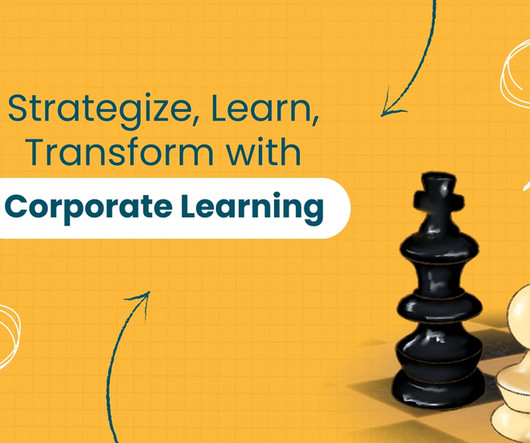This Is What I Believe About Learning in Organizations
The Performance Improvement Blog
SEPTEMBER 14, 2018
As globalization increases and communities become more diverse, the competitive advantage of any organization will be its collective knowledge and its expanded expertise. The Purpose of Business is Learning. But none of this is possible without learning. Employees tell stories to draw lessons and learn from their experiences.

































Let's personalize your content